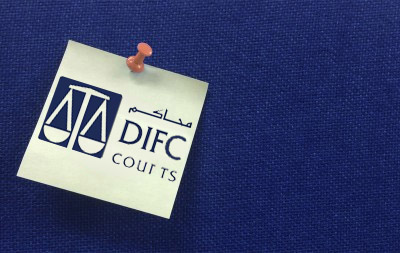Alec Emmerson and Keith Hutchison of Clyde & Co LLP share with us some of
the implications and effects of the recent ruling on the recognition and
enforcement of foreign awards in Dubai. Here, they highlight the importance of
the decision and indicate that whilst an element of uncertainty still remains,
clarity is within reach.
 Dubai’s Cassation Court (the final court of appeal) recently delivered an unequivocal judgment that the New York Convention on the Recognition and Enforcement of Foreign Arbitral Awards (NYC) applies and not the UAE Civil Procedure Code (CPC) to the enforcement of foreign awards. A long awaited ruling The Dubai Court of First Instance has also recently ruled in a case applying the NYC to foreign award enforcement in circumstances where neither party advanced arguments based upon it, and the pleadings focused on the provisions of the CPC. It may be that the well-publicised ruling in the Cassation case influenced the Court in making this further pro-arbitration ruling. Sparking a legal debate Set against the bigger picture, each of these cases should be viewed on their own merits and they do not in our view detract from Dubai’s increasingly prominent position in international arbitration. Dubai also benefits from the UAE’s bilateral treaty with India which includes award enforcement provisions. One result of the differing treatment of foreign versus domestic awards may be that more local users of arbitration choose a foreign or Dubai International Financial Centre (DIFC) seat for their arbitration for the advantages that this will bring over domestic awards at the enforcement stage. |
 Steering a course in the right direction In terms of the treatment of arbitration in the DIFC Courts, two recent cases have addressed an inconsistency between DIFC law and the UAE’s treaty obligations under the NYC. The earlier case highlighted the issue, while the later case provided a solution pending possible legislative reform. In International Electromechanical Services v Al Fattan the DIFC Court ordered a stay of proceedings for a foreign (non-DIFC seated) arbitration to proceed between the parties in accordance with an arbitration agreement. The Court declined to follow its earlier ruling in Injazat v Denton Wilde Sapte & Co where it had held that it was not bound by the DIFC Arbitration Law (or other DIFC statute) to stay proceedings brought in breach of an arbitration agreement for foreign arbitration, nor did it have an inherent jurisdiction to order a stay of proceedings in favour of foreign arbitration. The Court in Al Fattan agreed with Injazat that that there was no statutory obligation on the Court to stay proceedings for foreign arbitration, but it held that it had an inherent jurisdiction to order a stay of the case. Al Fattan has been widely received as a positive judgment from the DIFC Courts steering a path around the drafting error in the DIFC Arbitration Law. We expect legislative revision will remove the problem and settle the position more satisfactorily than reliance by the judiciary on its inherent jurisdiction. For arbitration and more generally for the reputation of Dubai’s legal system and its status as a significant arbitration centre, these recent judgments of Dubai’s civil and common law courts show that things are moving in the right direction. alec.emmerson@clydeco.com To read the ASIAN-MENA COUNSEL article Click Here (Note, if you are using an iPhone or iPad you can also download this article directly to your iBooks after it opens in Google Docs). |
IN-HOUSE OPINION: If you are an in-house counsel and you have a comment or an opinion you’d like to share either on this article or its subject matter, contact us at: inhouse@inhousecommunity.com with the article title in the subject line, stating clearly if you wish your comments to remain ‘Private’ or ‘Anonymous’.




















